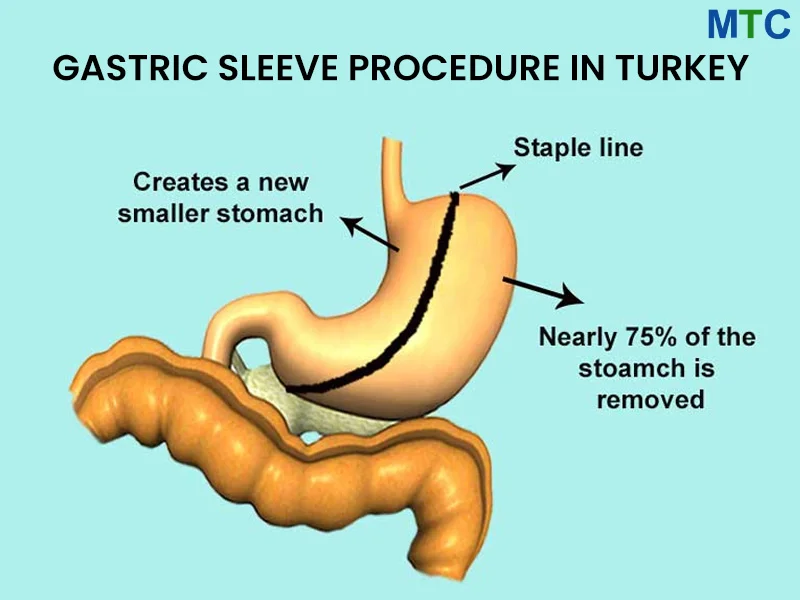Potassium is an essential mineral that plays a crucial role in maintaining proper bodily functions, including nerve and muscle function, fluid balance, and heart rhythm. However, when potassium levels exceed normal ranges, a condition known as hyperkalemia occurs.
However, too much of a good thing can lead to an imbalance. If you’re wondering how to flush excess potassium from your body, here are some natural methods to consider.
How Can I Lower My Potassium Quickly?
If you’re seeking quick potassium reduction, it’s important to consult a healthcare professional. They can provide personalized recommendations based on your health and circumstances. Rapid potassium lowering often involves medical interventions and should be done under supervision to avoid adverse effects.
How Do You Flush Potassium Out of Your Body Naturally?
Flushing potassium naturally involves several strategies. Increasing fluid intake supports kidney function, aiding potassium elimination through urine. Consuming low-potassium foods, like certain fruits, vegetables, grains, and lean proteins, prevents further buildup. Fiber-rich foods promote bowel movements, aiding potassium excretion through stool. Herbal teas, such as dandelion root and nettle tea, are believed to have diuretic properties that may contribute to potassium excretion. Regular exercise, balanced with hydration, stimulates sweating and potassium excretion.
Understanding Potassium and Its Role:
Potassium is a fundamental mineral that operates as an essential electrolyte within our bodies. It’s instrumental in maintaining numerous physiological functions crucial for our overall health and well-being. Let’s delve into the intricate role that potassium plays within our biological systems.
- Electrolyte Balance: Potassium functions as an electrolyte alongside sodium, chloride, and calcium. These electrolytes are charged particles that conduct electricity and facilitate vital communication between cells. Potassium’s electric charge is pivotal for nerve impulse transmission, muscle contraction, and maintaining the heart’s steady rhythm. This orchestration of electrical signals ensures our muscles move, our hearts beat, and our nervous system functions optimally.
- Fluid Regulation: Beyond its electrically charged role, potassium is integral to fluid balance within cells and the spaces surrounding them. This equilibrium is essential for maintaining proper hydration, cellular function, and the regulation of blood pressure. By controlling the movement of fluids, potassium helps prevent dehydration and supports cardiovascular health.
- Cellular Activities: Potassium exerts its influence at the cellular level by aiding in nutrient transport and waste removal. It facilitates the movement of nutrients into cells, ensuring they receive the essential elements required for their various functions. Conversely, potassium assists in eliminating waste products, contributing to cellular health and overall vitality.
- Blood Pressure Management: The relationship between potassium and sodium is crucial for managing blood pressure. While sodium can elevate blood pressure, potassium counters this effect by promoting vasodilation—the relaxation of blood vessel walls. This, in turn, reduces the strain on the cardiovascular system and helps maintain healthy blood pressure levels.
- Bone Health Considerations: While potassium’s role in bone health is often overshadowed by calcium and vitamin D, it still plays a part. Some studies suggest that a potassium-rich diet might aid in preserving bone mineral density. Although more research is needed, this connection underscores potassium’s multifaceted impact on our bodies.
- Sources of Potassium: An array of foods contains potassium, making it accessible in various diets. Fruits like bananas, oranges, and avocados, vegetables such as spinach and potatoes, dairy products, lean meats, legumes, and nuts are all potassium-rich options. Including these foods in your diet can contribute to maintaining healthy potassium levels.
- The Balance Paradigm: While potassium is undoubtedly essential, maintaining the right balance is critical. Too much potassium (hyperkalemia) or too little (hypokalemia) can disrupt bodily functions. Hyperkalemia can lead to heart rhythm irregularities, while hypokalemia might cause muscle cramps and weakness. Achieving and sustaining an appropriate potassium balance is vital for overall health.
Causes of High Potassium Levels in the Elderly:
High potassium levels, known as hyperkalemia, can pose health risks, particularly among the elderly population. Several factors can contribute to elevated potassium levels in older individuals. Understanding these causes is crucial for proper management and preventive measures. Here are some key factors that can lead to high potassium levels in the elderly:
- Reduced Kidney Function: As individuals age, their kidney function can decline. The kidneys play a pivotal role in regulating potassium levels by excreting excess potassium through urine. Diminished kidney function can impair the body’s ability to efficiently eliminate potassium, leading to its accumulation in the bloodstream.
- Medications: Elderly individuals often take multiple medications for various health conditions. Certain medications, such as angiotensin-converting enzyme (ACE) inhibitors, angiotensin II receptor blockers (ARBs), and potassium-sparing diuretics, can hinder potassium excretion. When taken together, these medications can elevate potassium levels.
- Dehydration: Dehydration is a common concern in older adults due to reduced thirst sensation and age-related changes. Dehydration can lead to a concentration of potassium in the blood as there is less fluid available to dilute it.
- Impaired Diet: Dietary habits can play a significant role in potassium levels. Consuming excessive amounts of high-potassium foods without proper balance can contribute to hyperkalemia. Additionally, older adults may face challenges in maintaining a balanced diet due to dental issues or reduced appetite.
- Chronic Kidney Disease (CKD): Chronic kidney disease is more prevalent among the elderly. In CKD, the kidneys gradually lose their ability to regulate potassium levels. This condition can increase the risk of hyperkalemia, especially when combined with other factors.
- Acute Kidney Injury: Sudden kidney damage, often due to infections, medications, or medical procedures, can disrupt potassium regulation. Acute kidney injury may lead to a rapid increase in potassium levels.
- Adrenal Insufficiency: Some elderly individuals may have adrenal insufficiency, a condition where the adrenal glands do not produce sufficient hormones. This can affect the body’s ability to regulate potassium levels.
- Diabetes: Diabetes is a common health issue in older adults. Poorly controlled diabetes can impact kidney function, contributing to potassium imbalances.
- Excessive Potassium Supplements: Over-the-counter potassium supplements, if taken without medical supervision, can cause potassium levels to rise excessively.
- Certain Health Conditions: Conditions such as congestive heart failure, Addison’s disease, and hemolysis (breakdown of red blood cells) can lead to hyperkalemia in the elderly.
Causes and Symptoms of Excess Potassium:
-
Causes of Excess Potassium:
- Impaired Kidney Function: Kidneys play a vital role in regulating potassium levels. Conditions like chronic kidney disease or acute kidney injury can disrupt this balance, leading to potassium buildup.
- Medications: Certain medications, such as potassium-sparing diuretics, ACE inhibitors, and ARBs, can interfere with potassium excretion, contributing to hyperkalemia.
- High-Potassium Diet: Consuming too many potassium-rich foods, such as bananas, citrus fruits, and leafy greens, without proper balance can raise potassium levels.
- Supplements: Excessive use of potassium supplements, especially without medical guidance, can lead to elevated potassium levels.
- Dehydration: Reduced fluid intake can concentrate potassium in the blood, increasing the risk of hyperkalemia.
- Addison’s Disease: This disorder affects the adrenal glands, which can disrupt potassium regulation.
- Infections: Severe infections or tissue damage, such as muscle injuries, can cause potassium release into the bloodstream.
-
Symptoms of Excess Potassium:
- Muscle Weakness: One of the hallmark symptoms of hyperkalemia is muscle weakness or even paralysis. This can affect various muscles, including those controlling the heart.
- Irregular Heartbeat: Elevated potassium levels can disrupt the heart’s electrical signals, leading to irregular heart rhythms (arrhythmias). Severe cases can result in cardiac arrest.
- Nausea and Vomiting: Gastrointestinal symptoms like nausea, vomiting, and abdominal discomfort can occur due to the impact of excess potassium on gut muscles.
- Tingling or Numbness: Hyperkalemia can affect nerve function, causing sensations of tingling, numbness, or even paresthesia in the extremities.
- Weak Pulse: A weak or irregular pulse can indicate heart-related complications arising from excessive potassium.
- Breathing Difficulties: Elevated potassium levels may interfere with the muscles responsible for breathing, leading to respiratory distress.
- Confusion: In severe cases, hyperkalemia can impact brain function, causing confusion, anxiety, or other cognitive changes.
Dietary Approaches to Manage Excess Potassium:
- Limit High-Potassium Foods: Reduce your intake of foods rich in potassium. This includes avoiding or moderating consumption of bananas, oranges, tomatoes, potatoes, avocados, and spinach. Instead, opt for lower-potassium alternatives.
- Monitor Portions: Pay attention to portion sizes when consuming moderate-potassium foods. Portion control can help prevent the accumulation of potassium in the bloodstream.
- Choose Low-Potassium Alternatives: Opt for fruits and vegetables with lower potassium content. For example, consider apples, berries, cucumbers, and green beans as alternatives to higher-potassium options.
- Soaking and Leaching: Soaking certain vegetables and fruits in water can help reduce their potassium content. This method is particularly effective for potatoes, sweet potatoes, and some legumes. Remember to discard the soaking water.
- Cooking Techniques: Cooking can also affect potassium content. Boiling or double-boiling vegetables in water and discarding the water can help reduce potassium levels. However, be mindful of overcooking, which can lead to nutrient loss.
- Dairy Selection: Choose dairy products with lower potassium content. Opt for skim or low-fat milk instead of whole milk, and consider low-potassium cheese options.
- Rinsing Canned Foods: If using canned foods, such as beans or vegetables, rinse them thoroughly with water to reduce their potassium content.
- Moderate Protein Intake: While protein is essential, some high-protein sources can contribute to potassium intake. Balance your protein choices with lower-potassium options like poultry and lean meats.
- Avoid Salt Substitutes: Some salt substitutes contain potassium chloride, which can contribute to excess potassium. Read labels carefully and opt for alternatives that do not contain potassium.
- Consult a Dietitian: A registered dietitian can help tailor a dietary plan to manage hyperkalemia while ensuring you receive necessary nutrients. They can provide personalized guidance based on your medical history and preferences.
Treatment for High Potassium (Hyperkalemia):
Here’s an overview of treatment options for hyperkalemia:
- Mild Hyperkalemia:
For mild cases of hyperkalemia, treatment may involve dietary adjustments and lifestyle modifications:
- Reducing Potassium Intake: Limit or avoid high-potassium foods, such as bananas, oranges, potatoes, and tomatoes.
- Balanced Diet: Consume a balanced diet with appropriate portion sizes to prevent potassium buildup.
- Fluid Intake: Maintain adequate fluid intake to support kidney function and potassium excretion.
- Medication Review: Review medications with your healthcare provider, as certain medications can contribute to hyperkalemia.
- Moderate Hyperkalemia:
In cases of moderate hyperkalemia, medical interventions may be necessary:
- Medications: Depending on the situation, your doctor may prescribe medications to enhance potassium excretion or temporarily shift potassium from the bloodstream into cells. Common medications include loop diuretics, sodium polystyrene sulfonate, and beta-2 agonists.
- Severe Hyperkalemia:
Severe hyperkalemia is a medical emergency that requires immediate intervention to prevent life-threatening complications:
- Calcium Gluconate: Intravenous calcium gluconate is often administered to protect the heart from the effects of high potassium levels. It helps stabilize the heart’s electrical activity.
- Insulin and Glucose: Insulin, along with glucose, is given intravenously to move excess potassium from the bloodstream into cells.
- Sodium Bicarbonate: In certain cases, sodium bicarbonate may be used to counteract the acidosis associated with hyperkalemia, thereby reducing potassium levels.
- Hemodialysis: In severe cases or when other treatments are ineffective, hemodialysis is performed. This process filters excess potassium from the blood and is a highly effective way to rapidly lower potassium levels.
Prevention:
Preventing hyperkalemia involves:
- Dietary Management: Adhering to a low-potassium diet and avoiding excessive consumption of high-potassium foods.
- Medication Monitoring: Regularly reviewing medications with your healthcare provider and discussing potential potassium-related side effects.
- Fluid Intake: Staying hydrated to support kidney function and potassium excretion.
- Medical Check-ups: Regularly visiting your doctor, especially if you have conditions that increase your risk of hyperkalemia, such as kidney disease or heart conditions.
How to Natually Lower Potassuim
Conclusion:
Balancing potassium levels is a fundamental aspect of maintaining good health. To flush excess potassium naturally, we’ve explored practical methods like staying hydrated, choosing low-potassium foods, and engaging in regular physical activity. These strategies support kidney function, aiding in the excretion of surplus potassium.
Remember, while managing excess potassium is essential, maintaining an optimal intake remains equally important. By adopting these mindful approaches and seeking guidance from healthcare professionals, you can promote balanced potassium levels and embrace a healthier, more vibrant life.
Take charge of your well-being by embracing these strategies and making informed choices to foster the ideal equilibrium of potassium within your body.
Frequently Asked Questions:
Q1: What are some common causes of hyperkalemia?
Ans: Kidney disease, medications, and adrenal insufficiency are common causes.
Q2: Can hyperkalemia be managed with dietary changes alone?
Ans: In some cases, a low-potassium diet may be helpful, but medication and other interventions are often necessary.
Q3: How is hyperkalemia diagnosed?
Ans: Hyperkalemia is diagnosed through a blood test that measures potassium levels.
Q4: What are the potential complications of hyperkalemia?
Ans: Complications can include irregular heart rhythms, cardiac arrest, and other serious health problems.
Q5: Can hyperkalemia be cured?
Ans: Hyperkalemia is not curable, but it can be managed effectively with appropriate treatment and management.




